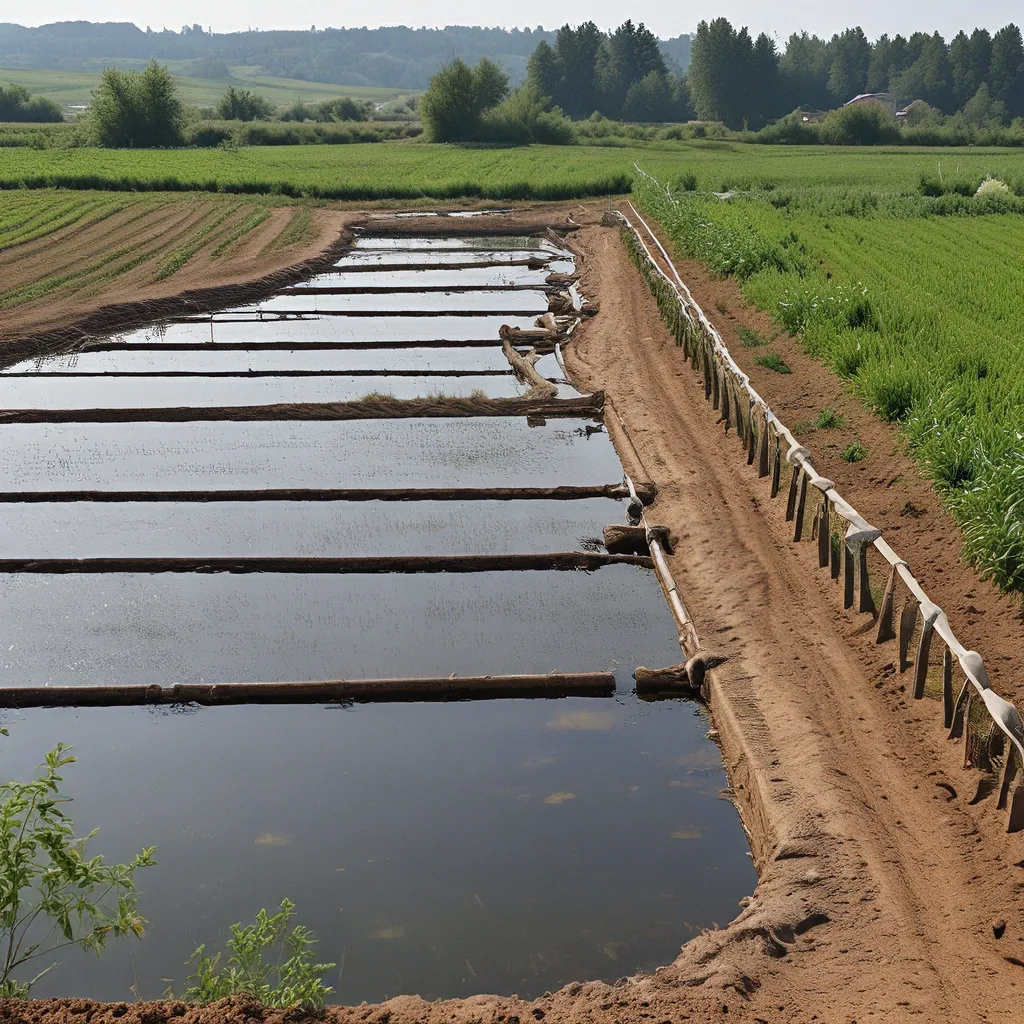
As an environmental enthusiast, I’ve always been fascinated by the intricate relationships between different systems in our world. And when it comes to the intersection of wastewater treatment and sustainable agriculture, the potential for symbiotic solutions is truly captivating. Join me as we dive into this fascinating domain and uncover the hidden synergies that could pave the way for a more eco-friendly future.
Unlocking the Potential of Wastewater
Let’s start by taking a closer look at the world of wastewater treatment. Oftentimes, we think of it as a necessary but unglamorous task – something that happens behind the scenes to keep our communities clean and healthy. But what if I told you that wastewater holds the key to unlocking a more sustainable agricultural landscape?
The Power of Nutrients
When we think about wastewater, the first thing that comes to mind is the traditional treatment process – removing contaminants, filtering out solids, and disinfecting the water before it’s released back into the environment. But what if I told you that the real treasure lies in the nutrient-rich byproducts of this process?
Research suggests that the nitrogen, phosphorus, and other essential nutrients present in treated wastewater can be repurposed as valuable fertilizers for agricultural applications. By integrating these nutrient-rich streams into farming practices, we can reduce the reliance on synthetic fertilizers, which can have detrimental effects on the environment.
Embracing the Circular Economy
This is where the concept of a circular economy comes into play. Rather than treating wastewater as a waste stream to be disposed of, we can envision it as a resource to be harnessed and reintroduced into the agricultural system. Imagine a world where the nutrients we extract from wastewater are used to nourish our crops, creating a closed-loop system that minimizes waste and maximizes sustainability.
The Rhode Island Department of Environmental Management (DEM) is leading the way in this area, with initiatives that explore the integration of wastewater treatment and sustainable agriculture. By working closely with local farmers and water utility providers, they’re identifying innovative solutions that benefit both the environment and the agricultural community.
Overcoming Challenges, Embracing Innovation
Of course, implementing these synergistic solutions isn’t without its challenges. Concerns around contaminants, public perception, and logistical hurdles must be addressed carefully. But as the saying goes, where there’s a will, there’s a way – and the dedicated individuals and organizations working in this space are proving that innovation can overcome even the most daunting obstacles.
Recent research highlights the potential for advanced wastewater treatment technologies to remove emerging contaminants and ensure the safety of water used for agricultural irrigation. And by engaging with the public and addressing their concerns head-on, we can build trust and foster a collective understanding of the benefits of these sustainable practices.
The Future of Wastewater and Agriculture
As I ponder the future of this fascinating intersection, I can’t help but feel a sense of excitement and optimism. Imagine a world where the byproducts of wastewater treatment are celebrated as agricultural resources, where the circular economy thrives, and where our food production systems are in harmony with the natural environment.
Companies like Alpha Wastewater are already leading the charge, developing innovative solutions that bridge the gap between wastewater treatment and sustainable agriculture. By partnering with forward-thinking organizations and embracing the power of collaboration, they’re paving the way for a greener, more resilient future.
Of course, the journey ahead is not without its challenges. There will be obstacles to overcome, new technologies to explore, and public perceptions to shift. But as I look at the dedicated individuals and organizations working tirelessly in this space, I can’t help but feel a sense of wonder and hope. Because when we harness the power of innovation and embrace the interconnectedness of our world, the possibilities for a more sustainable future are truly limitless.
So, let’s continue to explore, experiment, and push the boundaries of what’s possible. Who knows what incredible synergies we might uncover next? The future of wastewater and agriculture is ours to create, and I, for one, can’t wait to see what we can accomplish together.